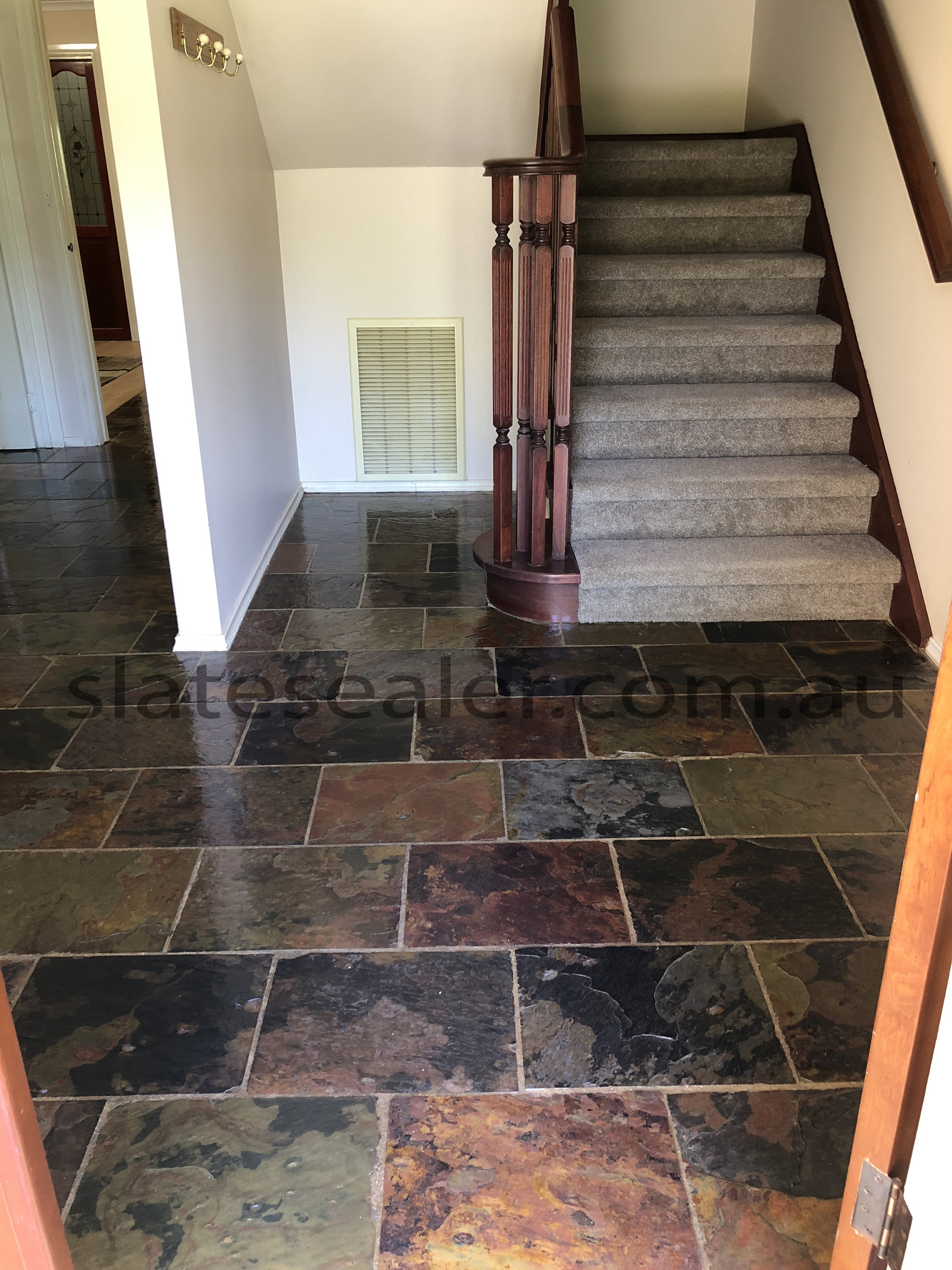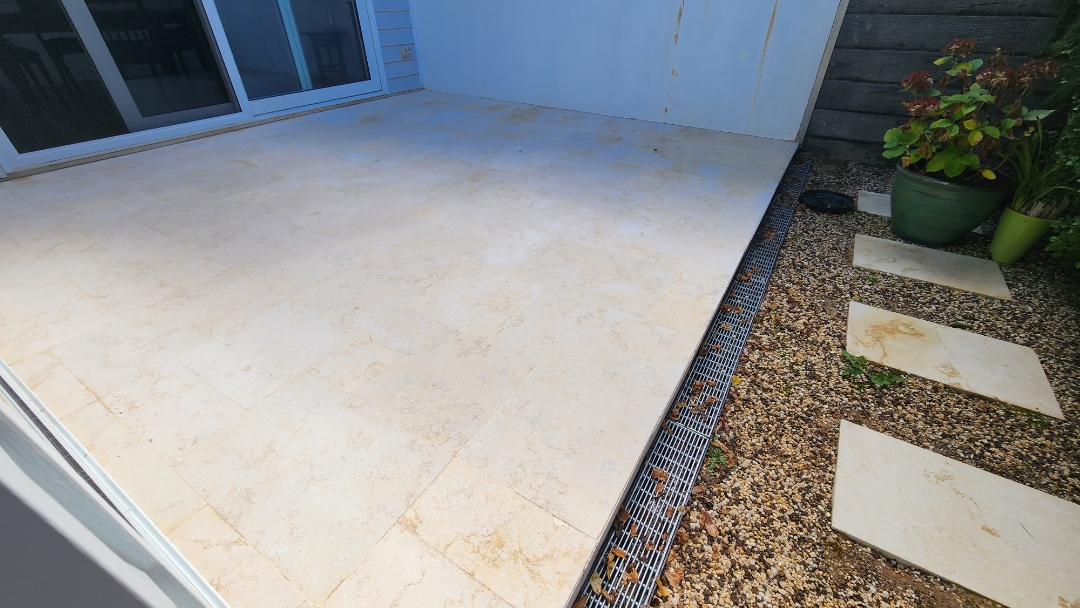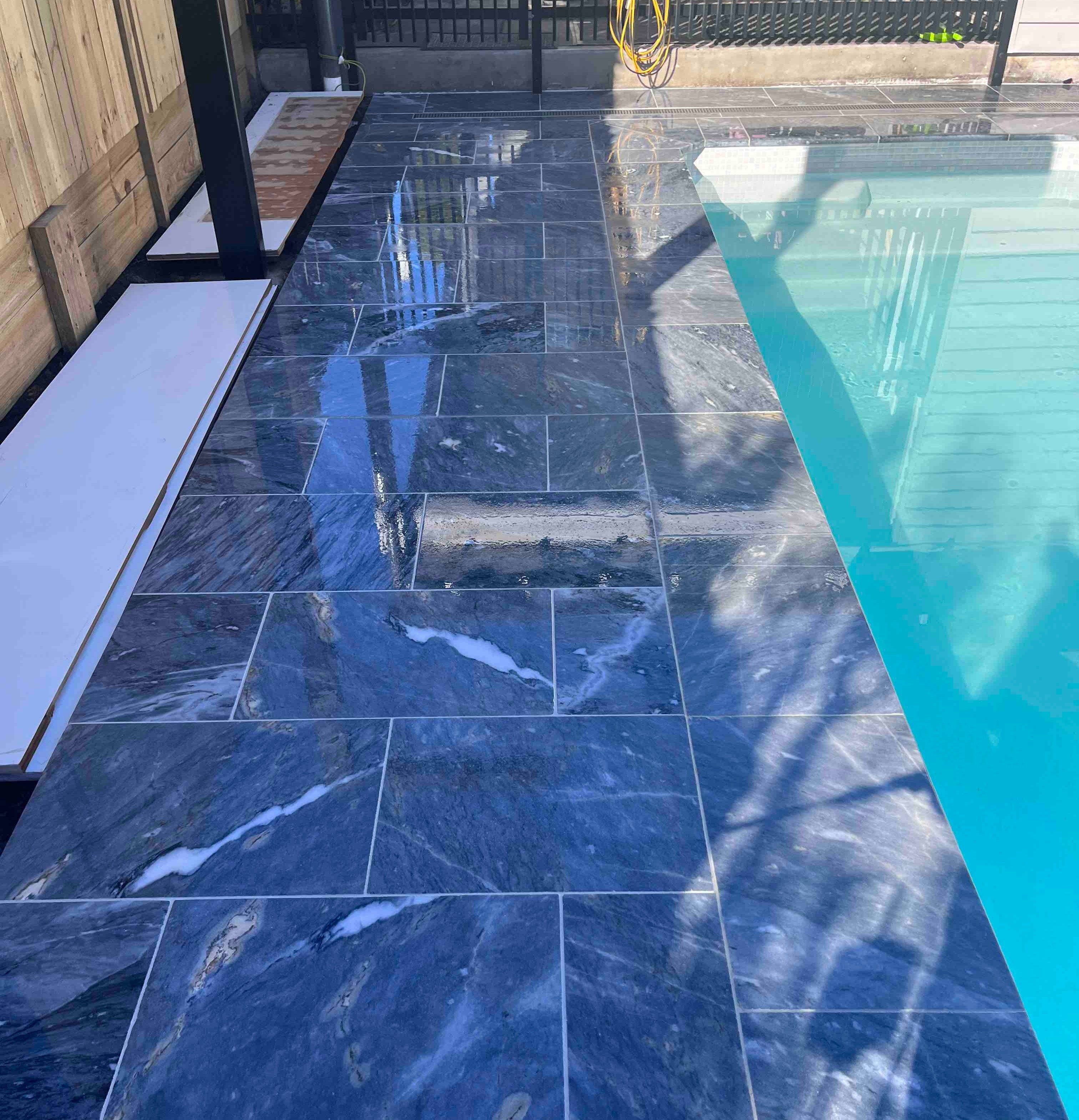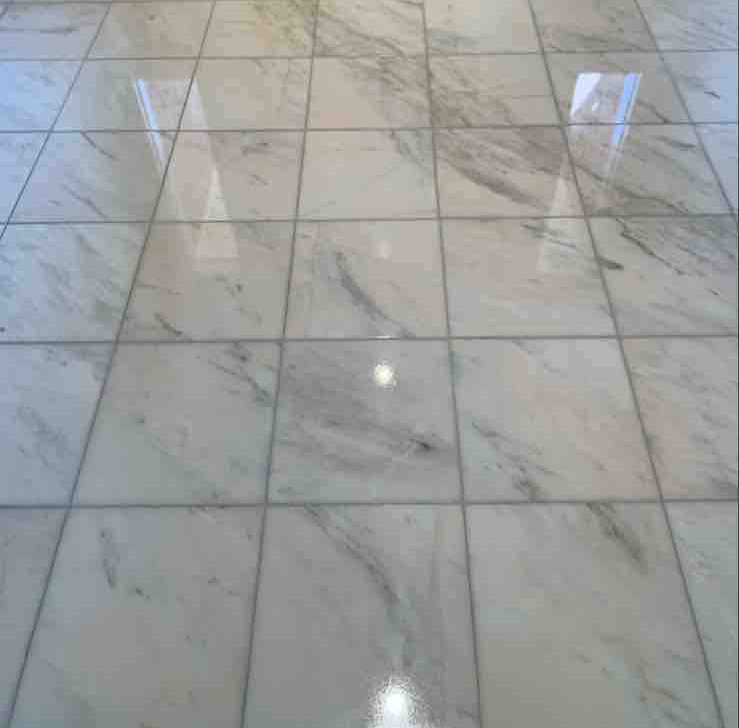- Slate Sealer Mornington
- Penetrating Slate Sealer Mornington
- Outdoor Slate Sealer Mornington
- Non Slip Sealer for Slate Mornington
- Long Lasting Slate Sealer Mornington
- Impregnating Slate Sealer Mornington
- Breathable Slate Sealer Mornington
- Best Slate Sealer Mornington
- Sealing Slate Pavers Mornington
- Sealing Slate around Pool Mornington
- Sealing Slate Kitchens Mornington
- Sealing Slate Bathrooms Mornington
- Sealing Slate Showers Mornington
- Sealing Slate Benchtops Mornington
- Protecting against Acid Attack
- Protecting against Salt Attack
- Protecting against Efflorescence
- Why Slate?
- What is Slate?
- What is Efflorescence?
- Maintenance & Care Mornington
- Slate Stains Removal Mornington
- Efflorescence Removal Mornington
- Slate Available Finishes Mornington
Finishes Available for Slate Mornington - Clarence - Hobart
While marbles and granites are commonly ground and polished to achieve a high gloss, many types of slatestone in Clarence are too dense or textured for this treatment. In most cases, slatestone will be honed or finished to a flat or matte appearance. Honed slatestone typically exhibits a smooth, matte surface with minimal sheen.
However, there are several other finishes available for slatestone in Clarence. Various processes and finishing techniques can yield distinct looks and effects, offering versatility in design and aesthetics.
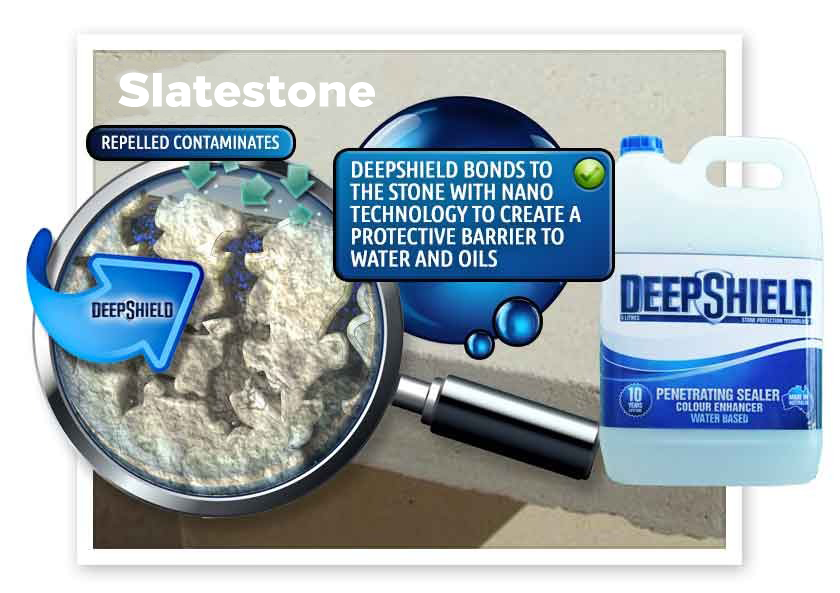 Different finishes are better suited to specific environments, situations, and preferences.
Sawn Finish:
Different finishes are better suited to specific environments, situations, and preferences.
Sawn Finish:
Characterized by a relatively rough surface, the natural slatestone is cut with saws without undergoing additional processes such as honing, tumbling, or flaming. The saw marks are likely to be visible on the surface.
Polished Finish:Characterized by a smooth and reflective surface that enhances the full color and character of the slatestone. This finish is less slip-resistant and typically reserved for indoor areas in Clarence such as hotel receptions and tabletops. The polishing process involves using increasingly finer abrasives after the honing stage, followed by buffing the stone to achieve a high gloss.
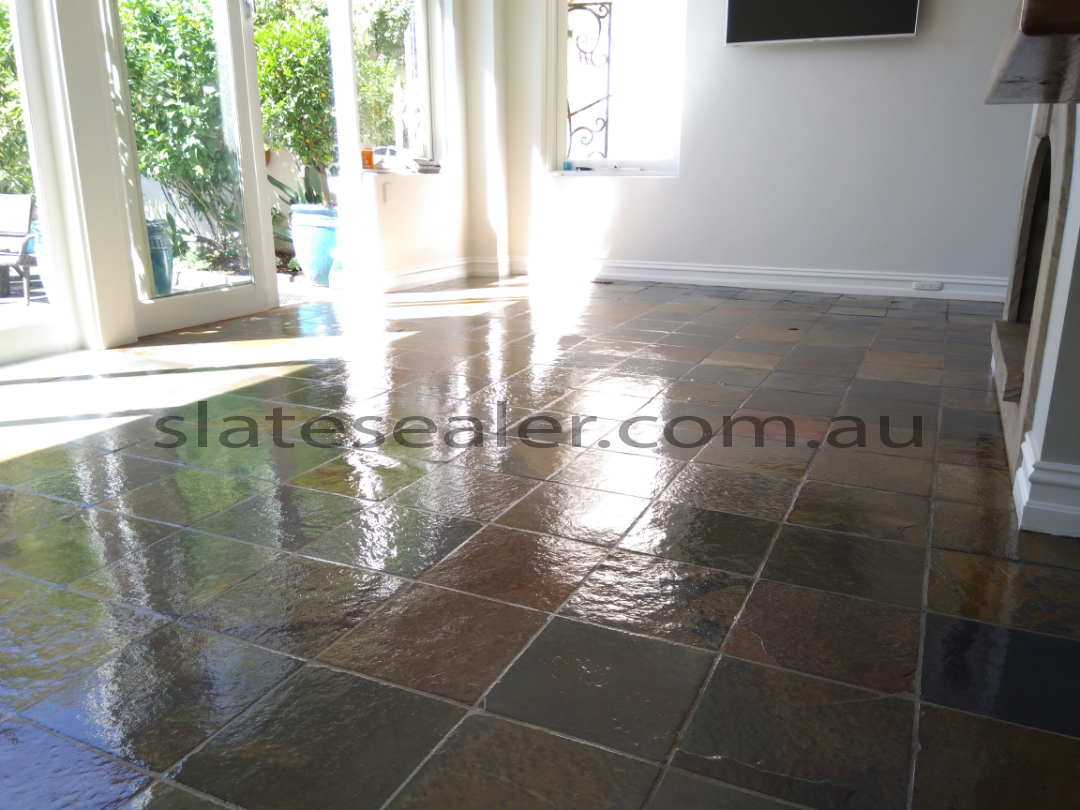
Antiqued/Tumbled Finish:
Tumbling is a common technique used to distress the edges and surface of slatestone in Clarence by vibrating it in a bath of sand, grit, and sometimes acid. This process results in a finish that appears aged and worn.
Honed Finish:Honing is a less aggressive method compared to grinding, involving the use of coarse grit abrasives to grind and sand the slatestone in Clarence, creating a smooth but satin, non-reflective surface.
Ground Finish:Ground finishing is a highly aggressive approach to refinishing slatestone in Clarence, utilizing a heavy-weighted floor buffer with metal-bonded diamond grit to remove deep scratches and lippage. The aim is to flatten the surface and smooth out imperfections, often followed by honing and polishing.
Brushed Finish:Brushing with steel or hard nylon brushes, along with water, is used to wear out softer parts of the slatestone, creating a textured finish that imparts an antique appearance.
Sandblasted Finish:High-pressure sandblasting or shot-blasting creates a textured surface on slatestone in Clarence. This process can lighten the stone and mask its natural character by obscuring veins and fossils within the stone.
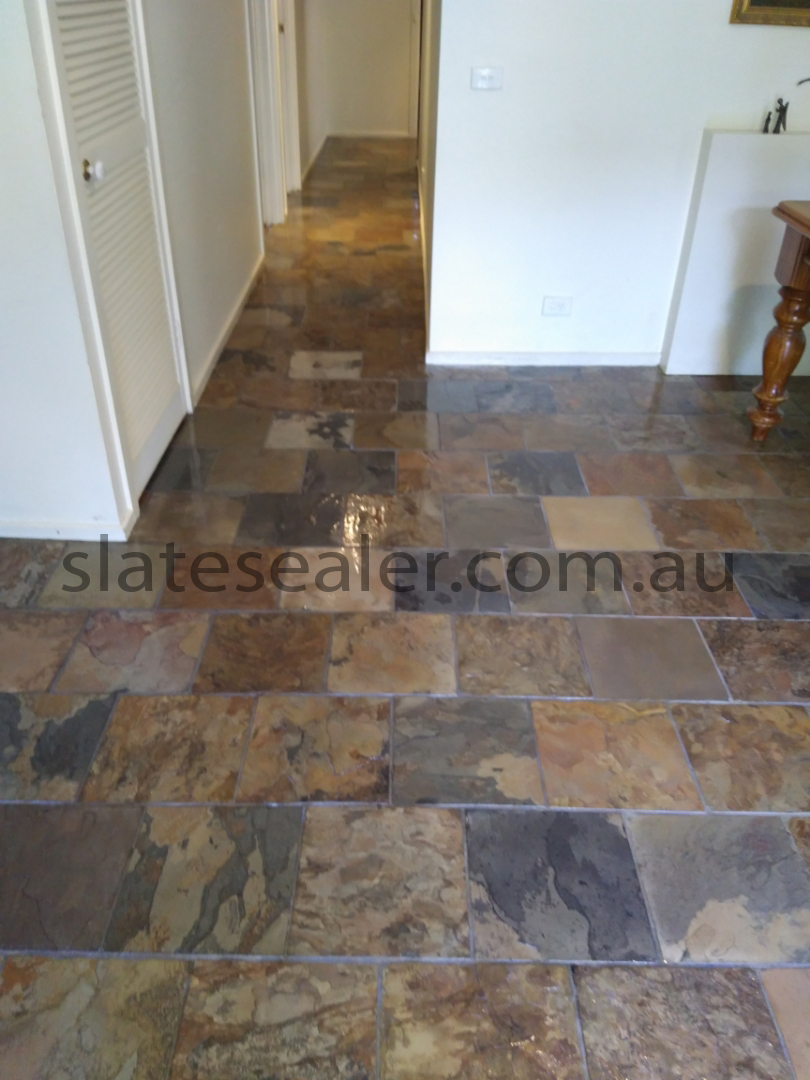
Bush-Hammered Finish:
This technique involves using a bush hammer, either by machine or hand, to impact the surface of slatestone and create a highly anti-slip finish. The result is a textured surface with pitted indentations, providing enhanced traction.
Chiselled Finish:Mechanical chiselling is employed to create lines or grooves in the slatestone, producing an anti-slip finish.
For instances of heavy wear and etching, StoneMaster can resurface the affected area to remove all imperfections, followed by polishing with a suitable compound to restore the original finish.In most situations with normal wear on natural stone, a simple polish will restore the sheen.
In cases with heavy wear and etches, StoneMaster can resurface the area and remove all scratches and etches and then polish with a polishing compound to restore the original finish.
